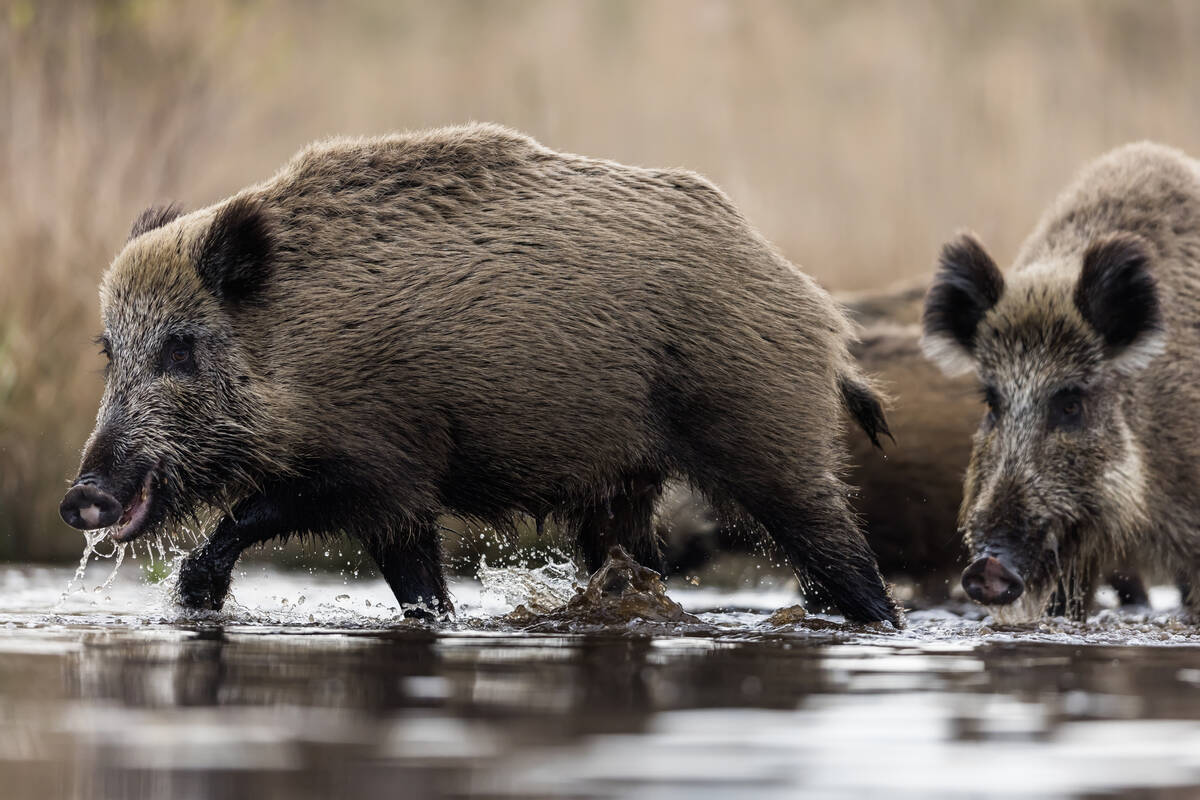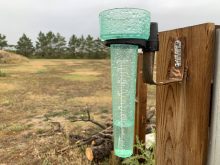Consumers in Canada, Europe and Australia will be happy to know that solin is now officially safe, at least as far as the United States government is concerned.
They’ve been consuming vegetable oil from the flaxseed-derived plant for several years and have suffered no ill effects.
But it was only last week that the U.S. Food and Drug Administration finally gave its blessing to solin oil, bestowing on the product its much valued Generally Regarded As Safe status.
It was a decision that brought smiles of relief and tingles of anticipation to grain marketers in Canada.
Read Also

Manitoba bans wild boar possession
Manitoba has tightened the regulatory status of Eurasian wild boar in an effort to help fight back against invasive wild pigs.
“This is a very significant development,’ said Ken Mudry of United Grain Growers, which has been campaigning for three years to get GRAS status for solin. “It means we’ll now be able to sell oil into the U.S. market.”
It could also open up markets in other countries that follow the U.S. lead on food safety issues, such as Japan and Mexico.
UGG is the exclusive marketing agent for Linola, the only commercially available variety of solin, a type of flaxseed with low levels of linoleic acid.
Canadian grain merchants fondly remember the impact that GRAS status had on canola in the mid-1980s, boosting demand for canola oil and meal in the large and lucrative market south of the border.
Mudry acknowledges he’s not expecting the same impact on solin, which is still in its infancy, but said there’s no doubt it will open up new markets and new opportunities for farmers.
“Definitely demand will increase and in return we’ll have to increase our contracting program across Western Canada and in the U.S.,” he said.
This year UGG contracted more than 200,000 acres in Western Canada. The company won’t release the exact number, citing commercial confidentiality. Another 33,000 acres were contracted in the United Kingdom, along with a small area in Washington, Idaho and Montana.
Mudry said a number of customers in the U.S. have been anxious to buy Linola, but wouldn’t do so until it received GRAS status, for reasons of legal liability.
Linola will compete with sunflower oil, which it closely resembles in chemical composition. It’s used mainly as an ingredient in margarine, although discussions are under way with a major U.S. processor to bottle it and sell it directly to consumers as a salad oil.
Currently about 90 percent of the Linola produced in Canada is exported to Europe, with the remainder consumed domestically. Mudry said the company’s long-term plans call for about 50 percent to be sold in North America and 50 percent overseas.
The GRAS status covers the use of solin as a general purpose cooking, frying and salad oil, and as an ingredient in margarines, shortening and other products. The FDA approved solin after reviewing technical data provided by UGG on such issues as oil refining, flavor, thermal and storage stability, and protein profiles and fatty acid content.














